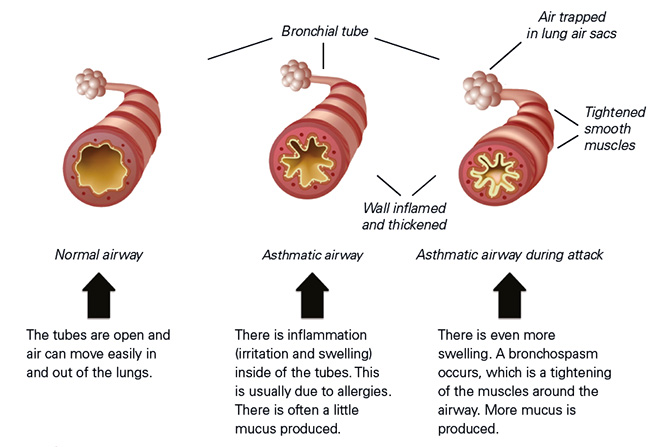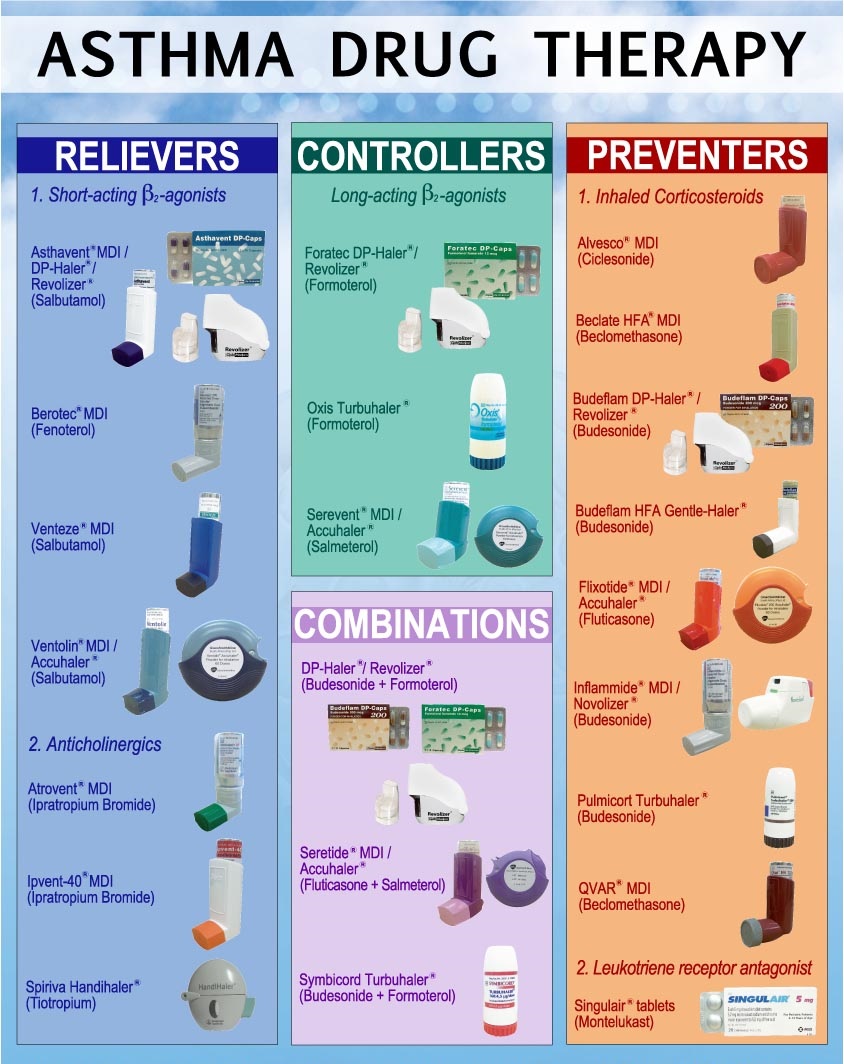 More than 73,000 Nova Scotians have Asthma. Your pharmacist is an important member of your healthcare team who can help.
More than 73,000 Nova Scotians have Asthma. Your pharmacist is an important member of your healthcare team who can help.
Some of the ways your pharmacist can help are:
Medication Reviews
Provide advice on reducing medication side effects
Counselling on medications
What is Asthma? Asthma is a lung condition that causes irritation and swelling (inflammation) of the lining of the airways in your lungs. The inflammation causes wheezing, coughing, and shortness of breath.

If you have asthma, the airways in your lungs are always somewhat inflamed, even when you do not have any symptoms. When your airways are exposed to irritants or allergens, the airways become more swollen and make more mucus.
Symptoms
Asthma has no set pattern. It's symptoms:
Can be mild, moderate or severe
Can vary from person to person
Can flare up from time to time and then not appear for long periods
Can vary from one episode to the next
Living with Asthma
People with asthma can live full, active lives. The most important thing is learning how to manage your symptoms.
Links from Asthma Canada:
- By avoiding your asthma triggers
- By taking your medication
- Through education from your healthcare team
- By following an asthma action plan
Treatment Options
Most people with asthma take two kinds of medication. That’s because each asthma medication treats only one aspect of the condition:
Controllers also called “preventers,” reduce inflammation in the airways. Controllers should be taken every day. You will know that the controller medication is working because you will, over time, have fewer and fewer symptoms. When your asthma is totally controlled and you have no symptoms, do not stop taking them. If you do, the airway inflammation may return.
Relievers help alleviate, or relieve, symptoms quickly. If your symptom is a cough, wheeze, chest tightness or shortness of breath, use a reliever medication to reduce symptoms. Relievers are only a short-term solution to your breathing problem as they treat the bronchoconstriction or tightening of the airway but they do not treat the underlying airway inflammation. Monitor how often you use your reliever as increased use over time is telling you that your asthma is worsening. Tell your doctor or refer to your Asthma Action Plan if you start using your reliever medication more. (source: Asthma Canada)

Helpful Links
